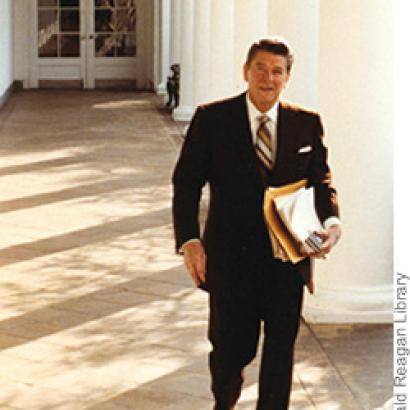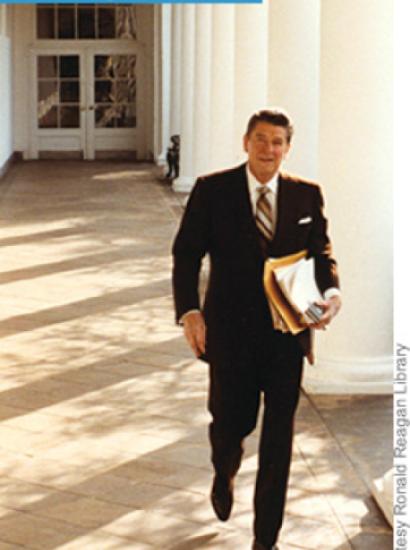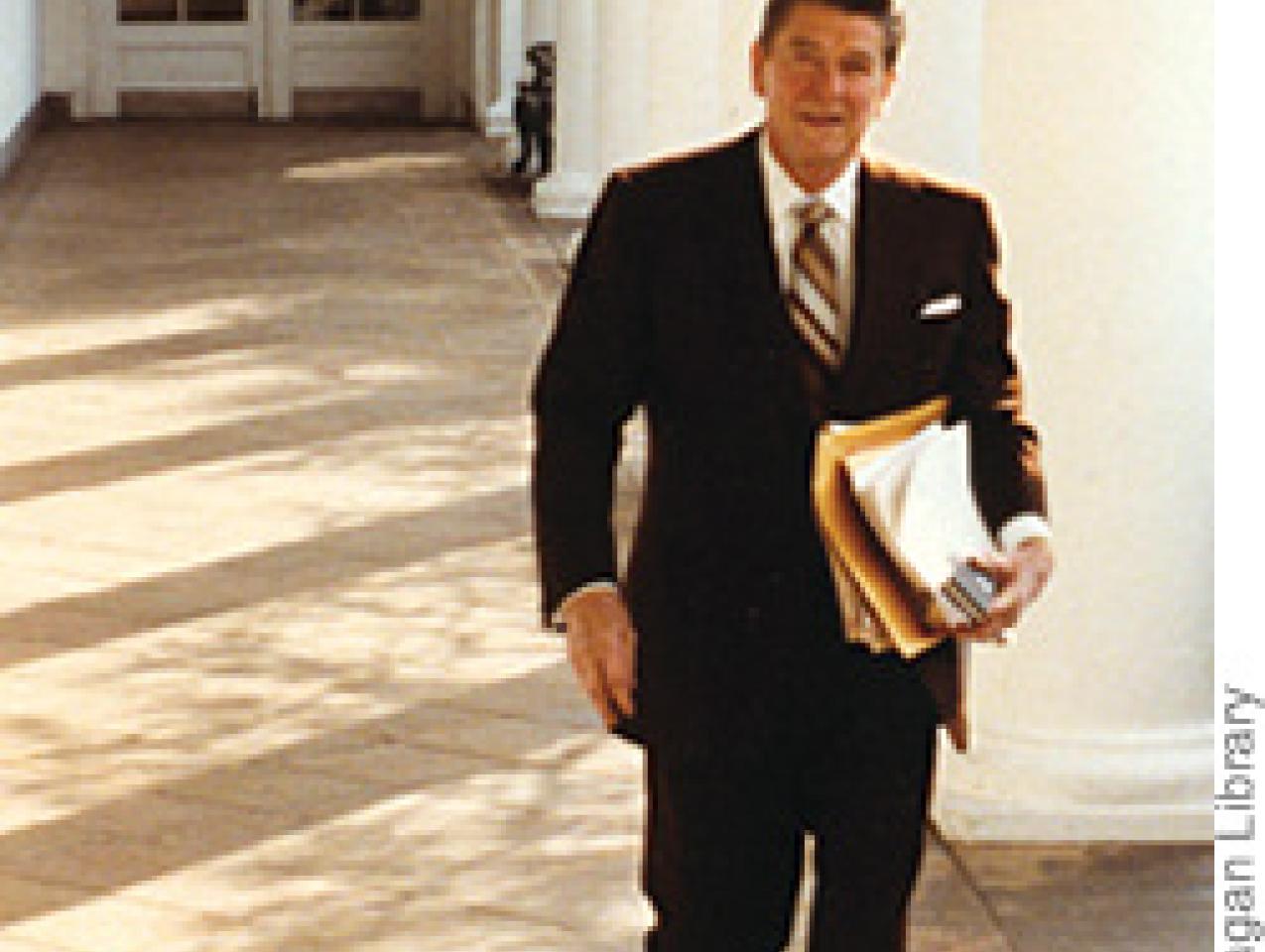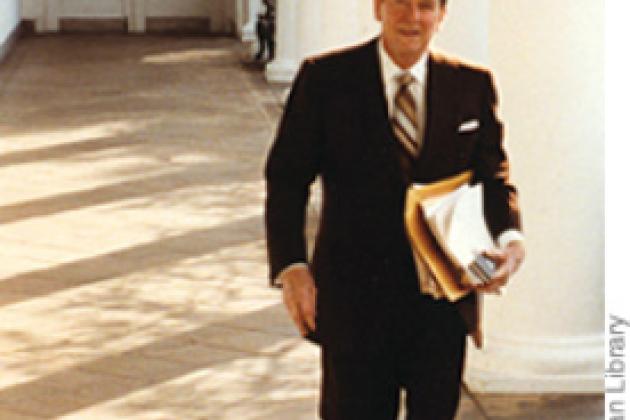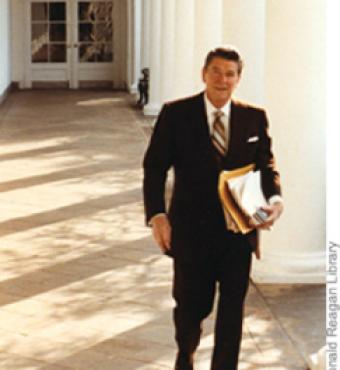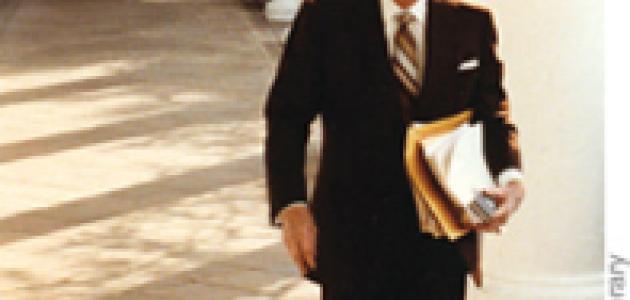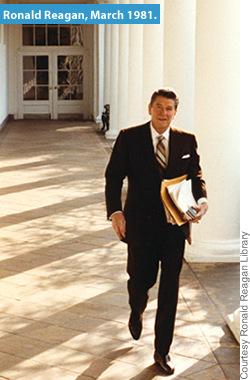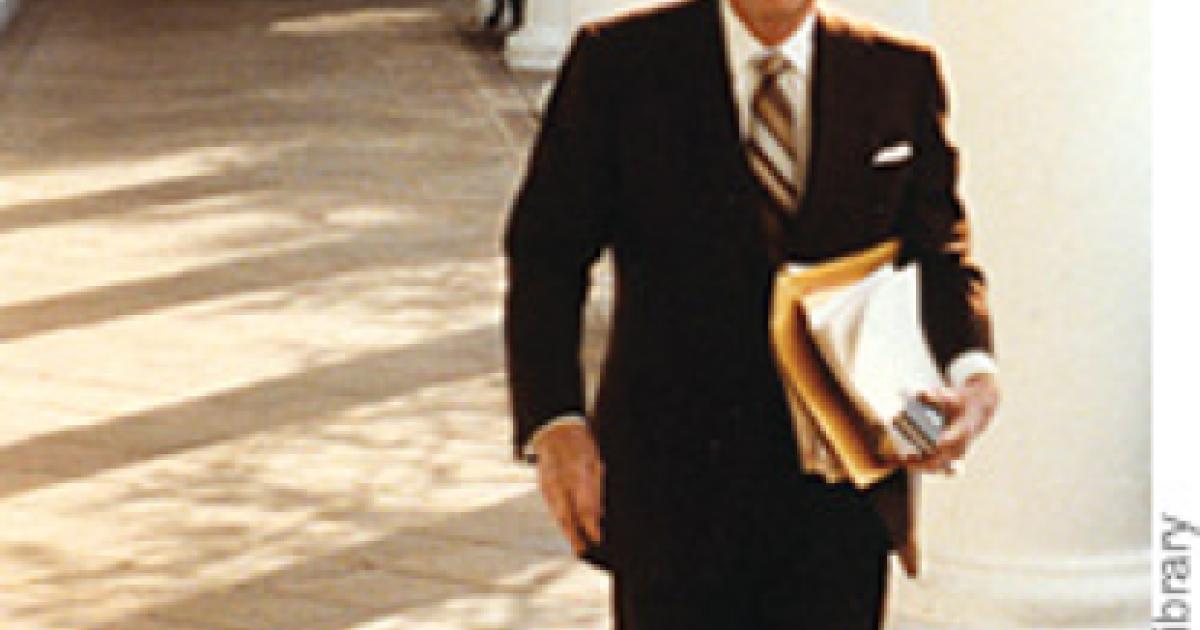- World
- Contemporary
- History
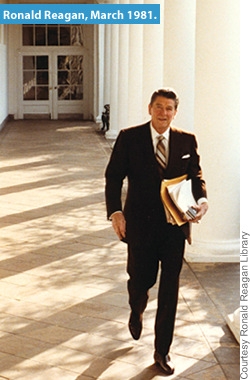
The respected management consultant Peter Drucker has written that to be a successful leader in the future one must be in harmony with oneself, love his fellow workers, and have a passion that draws one out of oneself. Furthermore, according to Drucker, a leader of the future must also have the emotional maturity to remain calm in periods of stress, change, and anxiety. In recent years books on leadership have stressed the need for the emotional maturity and stability that are present in one who is centered and capable of sustaining relationships that draw on the intimacy and trust formed out of the deep levels of personality.
Leadership out of the depths is nothing new. The concept is covered in the Bible. For many, Peter Drucker’s thoughts resonate with one of the great underlying written premises of Christian, Jewish, and Islamic religions: that one must be in harmony with oneself, with one’s neighbors, and with a form of ultimate reality that calls us outside ourselves and that many choose to call God. Many would agree that a major purpose of all religions is to draw one out of oneself and into a relationship with the other, including the Divine Other.
Dante drew on this when he wrote to Can Grande, his protector while in exile from Florence, describing how he wished his great poem “Divine Comedy” to be read. First, there is the surface level, describing what appears to be going on. Then comes the allegorical level, where one makes meanings through the stories and heroes that move them. Then comes the moral level, which depicts the legal and normative values of the day. Finally comes the fourth level, the depth of spirituality and religion, where the deepest meanings and connections are made. Such a method of thinking was derived by Dante from the lectio divina, the method of deep contemplative prayer utilized by medieval monks.
Centuries later, Soren Kierkegaard utilized a similar methodology is arriving at his three levels of living: the aesthetic, the ethical, and the religious. For him the aesthete lived on the surface level of self-gratification and leisure. As one matured and took on the responsibilities of marriage, family, career, and the like, one became ethical. The final religious stage was achieved only when one could let go of oneself and be responsive to the claims and needs of others, including the Divine Other.
Dietrich Bonhoeffer, the German theologian and a leader in the underground movement to eliminate Hitler, wrote of “religion-less religion” or “hidden religion” in “ a world come of age.” By this he meant that in a secular society that no longer treasures, and even disdains, outward religious symbolism, one may still remain deeply religious and spiritual by acting out one’s faith in little acts of everyday kindness and grace.
The twentieth-century theologian Paul Tillich wrote in The Courage to Be of the self-confidence required to bring our spiritual natures into everyday life. University of Southern California professor Ira Mitroff reports the results of surveys indicating that, more than financial compensation, most people treasure work that fulfills them as people and that allows them to realize their full potential.
We need current examples to remind us that great leadership comes out of the depth of our being. In his book How Ronald Reagan Changed My Life, former Reagan White House speechwriter Peter Robinson repeatedly reports on the positive impact of the inner calmness and serenity of the former president on those around him and, indeed, on the world at large. Despite a life that had all too many of the common causes of misery—divorce, professional setbacks, an alcoholic father—Reagan sustained an almost theological sense of hope, strength, resiliency, and an innate sense of the basic goodness of creation.
Robinson was clearly one of the president’s most effective speechwriters, coming up with the memorable phrase “Mr. Gorbachev. Tear down this wall!” He lucked into a job in the White House through his friendship with William F. Buckley Jr. He and his contemporaries on the White House writers’ staff (several of whom became lifelong friends) would spend hours discussing what it was that made the president who he was. As a result they became adept at writing speeches in the president’s voice. One reason they could write parts of a speech that sounded like Reagan speaking was because the president had developed a deep consistency and integrity about who he was and what he said and how he said it. He knew who he was, and others could figure out who he was as well. When the State Department tried to put its words in his mouth, it failed.
These were formative years in Robinson’s maturation. Although he writes little explicitly about his personal faith, it becomes clear that he is on a journey as well. He spent evenings discussing Reagan’s religious makeup with a friendly priest. In the course of coming to understand Reagan’s faith and prayer life, he also become less self-conscious about exploring his own depths as a person.
Robinson reports that Reagan was known to his closest friends as a man of faith, but none could say exactly why. “We all sensed it—we just knew. But it’s not as if Reagan wore his religion on his
According to a close friend: “He was a man of prayer. Reagan prayed in all moods and in all circumstances. Even during government meetings, Reagan might offer a brief, silent prayer. I could usually tell when he was in communication with our Lord. When he was leaning back his head and looking at the ceiling, that’s often when he was praying.... He didn’t need a church to pray in. He referred to his ranch as an open cathedral with oak trees for walls. On trail rides, Reagan would recite the famous prayer of St. Francis of Assisi that opens: ‘Lord make me an instrument of Thy peace.’ Sometimes the president would look around and say, ‘What a wonderful place for prayer.’ And sometimes he’d just look up at the sky and say, ‘Glory to God.’”
President Reagan connected with the pope in their deep desire to free Eastern Europe. In a speech draft Reagan wrote: “Our prayers will go with you [the pope would soon be traveling to Poland] in the profound hope that soon the hand of God will lighten the terrible burden of brave people everywhere who yearn for freedom, even as all men and women yearn for the freedom that God gave us all when he gave us free will.... Perhaps it’s not too much to hope that true change will come to all countries that now deny or hinder the freedom to worship God.”
Robinson writes: “Yet if Reagan never wore his religion on his sleeve, he never gave the slightest indication that he ever felt embarrassed about it either. His love of God proved as central to the way he looked at the world—as central to his very being—as did his love of country. Working for him, I was finally able to quit feeling embarrassed about my own faith. Whenever I’d hear someone speak as if only rubes believed in God, I’d remind myself that Reagan had succeeded in radio, motion pictures, television, and politics—and that it looked as though he was winning the Cold War.... Working for Reagan taught me a second lesson about faith, one I still think about almost every day. It enabled me to see how faith and everyday life fit together.” Robinson sums up Reagan’s religious belief as follows: “Ronald Reagan demonstrated an implicit belief in the sacred and equal importance of all men as children of God.”
Robinson presents an overall portrait of the president as a genial man who was also a hard worker and a man of action. He portrays Reagan as genial and relaxed almost to a fault, lacking not only the intensity but also the vulgarity of several of his contemporaries. Despite media comment to the contrary, Reagan was always a very hard worker, handwriting many of his speeches and radio broadcast scripts as well as thousands of personalized letters. Well into his 70s he continued to put in full, hard days of labor at his ranch near Santa Barbara. Reagan’s faith might be summarized in a card one of the White House secretaries had tacked to a bulletin board over her desk: “Pray as if everything depended on God. Work as if everything depended on you.”
The media disparaged Bedtime for Bonzo and other “B” pictures he made, but Robinson makes the case that the experience of acting out multiple contingencies prepared the president for his leadership role. “He understands open-endedness and contingency. He sees that life is a drama in which a lot of the scenes still haven’t been written.” He also had developed a businessman’s capacity for taking action when all that needs to be known to make a decision is not and cannot be known. This capacity follows also directly from Tillich’s The Courage to Be. “Getting on with it, especially in the face of complexity, does simply come down to trying something. Ronald Reagan knew how to try something,” Robinson observed.
President Reagan’s small-town background, his unembarrassed belief in traditional values, and his basic trust in the American people resonated positively outside the Beltway and allowed him to go over Congress directly to the people, who trusted him.
Another of the speechwriters analyzed Reagan as follows: “What’s in his head is simple Christian belief as mediated by the democratic ideals of small towns in the Midwest. Reagan doesn’t believe he’s a superman. He believes everybody’s a superman—that all individuals have a kind of supreme inherent dignity. The way he looks at it, he just happens to be the one whose background and talents made him president. But he doesn’t consider himself one bit better than anybody else. And with him it’s not just an intellectual notion. It’s real. It really is. It’s so much a part of him that you can see it in the way he treats people every day.”
By transparently reporting his own faith journey and his maturing process as a young professional, Peter Robinson exposes himself to potential embarrassment and derision. His writing style is open, self-deprecating, and, at times, humorous. In revealing his interest in accessing Reagan’s spiritual nature, he displays a self-confidence and emotional maturity that stand well in the company of the man he is writing of. He gives to those who honor Ronald Reagan the gift of understanding much better what it is in the man that they admire so much. For those who are not admirers but sustain an open mind, Peter Robinson provides an opportunity to understand why this president was so successful in so many ways. Along with the two recent publications of Ronald Reagan’s writings and letters, How Ronald Reagan Changed My Life is an invaluable insight into the inner nature of a great leader that will stand the test of time.








